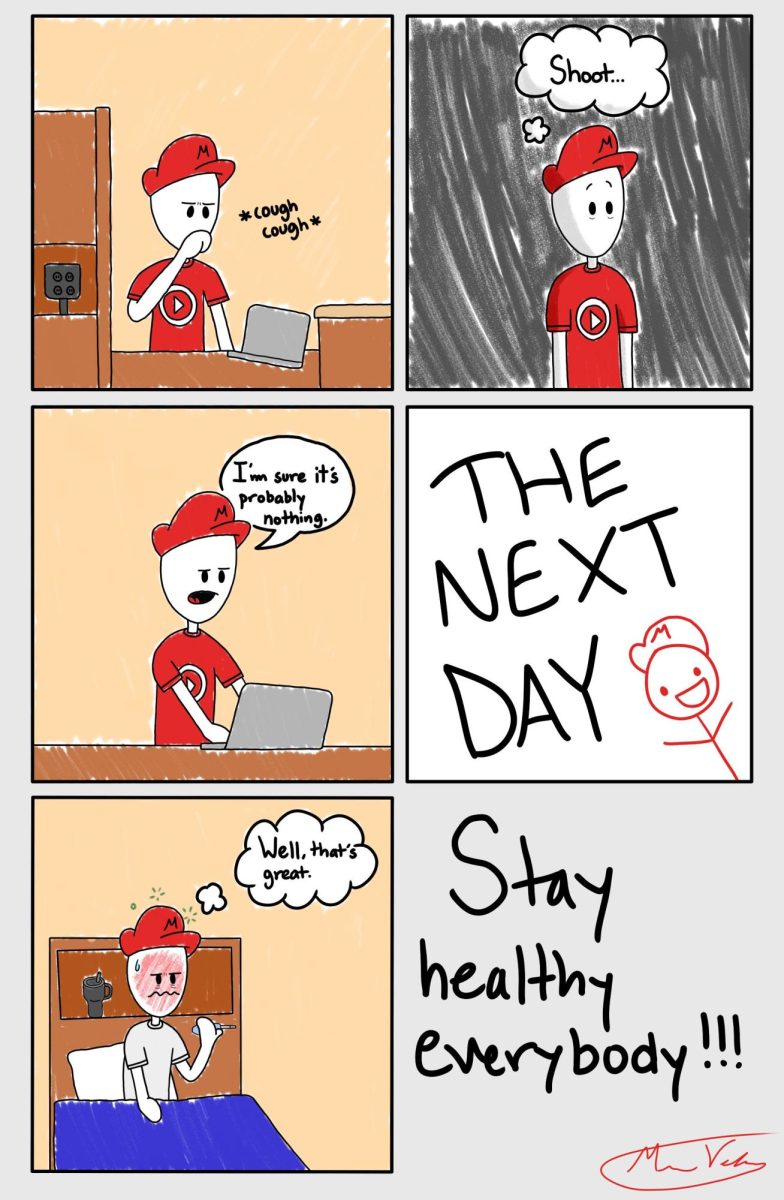Over the summer, I received a diagnosis that changed my life. Or, more accurately, made better sense of it.
I was diagnosed with attention-deficit hyperactivity disorder, more commonly known as ADHD.
This wasn’t exactly a shock to me. My journey to a diagnosis had started a year before, during the summer the world spent in lockdown because of COVID-19. I had first suspected the condition when I found I was unable to pull myself away from my online classwork. Later, I came to know that mental state is called hyperfixation, but at the time I knew it only as not realizing I had spent several hours on a project until noticing I was dangerously hungry.
At that point, I had seen enough about ADHD in my time on the internet to understand that I should probably check into it. After learning my family has a history of ADHD, I began to look into diagnosis and medication options—both of which turned out out to be more expensive and time-consuming than I anticipated.
But the time and money were worth it. I had finally realized life could get better for me. Although from an outside perspective I am reasonably functional without medication, I have to use a huge amount of energy to do certain tasks that others simply do easily.
At first, I was afraid changing my mental condition through medication would change my personality, and I would become unrecognizable. But several friends on medication for other mental conditions assured me that they had similar fears initially, but they were glad they’d started medication. Knowing that I could improve my life and have some control over issues that had been controlling me, I took the plunge.
I returned to school excited about the opportunity to do the same things I had enjoyed before but with a better control of my time and attention. In fact, I was so excited I told several people in my life at school about my diagnosis, expecting them to celebrate with me as my friends who had seen my journey had. hat I wasn’t expecting was one question, repeated in several different circumstances: how does that affect your life?
There’s a simple answer to this question and a complicated one. The simple answer is that ADHD affects everyone who has it differently. In general, the condition causes you to struggle with focus, memory, sleep and even processing visual and auditory stimuli.
In my case, I focus too much on some things and too little on others, which leads to procrastination. I have trouble processing auditory stimuli, which is why I never watch movies without subtitles. I have bouts of insomnia and chronic night terrors. I overthink patterns of behavior and draw incorrect conclusions from them, which affects my relationships.
But those are all the symptoms I’ve lived with all my life, and now that I understand them better, I’m rapidly improving the methods I have to deal with them. And medication certainly does help.
The complicated answer is that ADHD affects how others perceive me, and not just those who know I have the condition. Long before my diagnosis was raising eyebrows, my condition was leveling insults at me.
Why can’t I just write this email now, instead of having to wait until I get back to my dorm? Why can’t I understand the sound clips for this French test at the same speed everyone else can? Why can’t I remember the lunch plans I had with a friend, even though they’re important to me? Why can’t I listen in chapel without needing something to work on with my hands?
When I couldn’t understand what made me different, ADHD was a source of a lot of insecurities for me. And if anyone else pointed out those difficulties, I took those comments as confirmation of my perceived shortcomings. When someone got frustrated with something I did differently because of the way my brain works, I wanted to fire back that I was frustrated, too—and I have to deal with the frustrating parts of myself far more often than anyone else does.
But as I learned more about myself and the mental space I live in, I realized my unique way of thinking gives me a valuable perspective. I can pull the big picture out of the patterns in tiny bits of information. I can determine the value or priority of rapid information easily. I can navigate a crisis situation with confidence and surety.
God makes people different, and He does so for many reasons. Because of the fall, often we find our differences frustrating, but He in His wisdom works through our differences. I know God’s plan for me involves ADHD, and I can value that instead of letting it frustrate me.ds























































